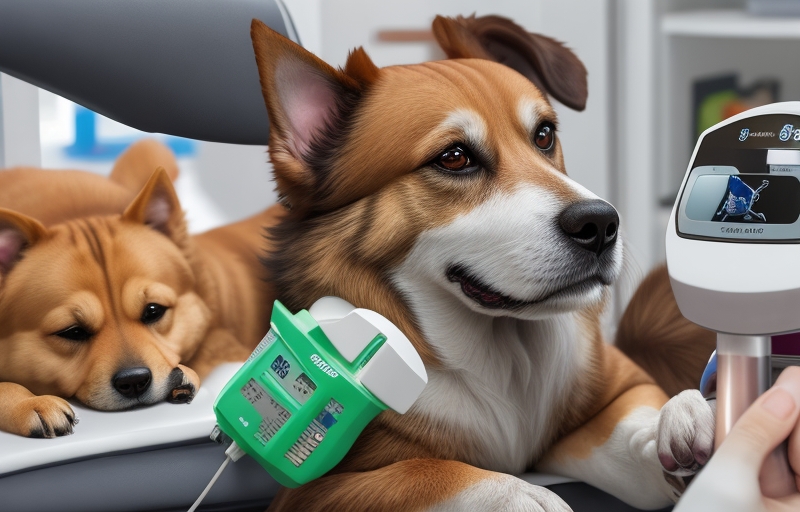Explore the Potential Risks of Excessive Vitamin C Intake in Dogs. Learn how to monitor for adverse reactions, adjust dosage, and ensure the well-being of your canine companion.
Introduction:
Vitamin C, known for its immune-boosting properties, is often considered a safe and beneficial supplement for both humans and animals. However, when it comes to our canine companions, excessive intake of Vitamin C can pose certain risks. In this comprehensive guide, we will delve into the potential side effects and the importance of monitoring for adverse reactions when introducing Vitamin C supplements to dogs.
Potential Risks of Excessive Vitamin C Intake in Dogs
Vitamin C, or ascorbic acid, plays a crucial role in various physiological processes in dogs, including collagen formation, immune system support, and antioxidant functions. While it is generally safe, excessive intake can lead to adverse side effects, such as:

Diarrhea:
Excessive Vitamin C intake in dogs can lead to an upset stomach and diarrhea. As a water-soluble vitamin, excess amounts are excreted through the intestines, resulting in loose stools. This digestive disruption is a common early sign of Vitamin C overdose and should prompt immediate attention and potential adjustment of the supplement dosage.
Gastrointestinal Upset:
Dogs may experience gastrointestinal upset, including nausea and vomiting when exposed to high doses of Vitamin C. The acidic nature of Vitamin C can irritate the stomach lining, causing discomfort and an aversion to food. Continuous exposure to elevated levels may exacerbate these symptoms and impact the overall well-being of the dog.
Increased Urination:
Vitamin C’s diuretic effect may lead to an increase in urination frequency in dogs. The excess vitamin is eliminated through urine, potentially causing the dog to drink more water. Monitoring changes in urination habits is essential, as persistent alterations may indicate an imbalance in the dog’s fluid regulation.
Abdominal Cramps:
Dogs might exhibit signs of abdominal cramps or discomfort due to excessive Vitamin C intake. The gastrointestinal irritation caused by the vitamin can lead to spasms or cramping sensations. Monitoring for restlessness, pacing, or abdominal tenderness can help identify this side effect and address it promptly.
Loss of Appetite:
Excessive Vitamin C can contribute to a loss of appetite in dogs. The digestive distress caused by an overdose may make eating unappealing to the dog. A decline in food consumption can lead to nutritional deficiencies if not addressed, emphasizing the importance of monitoring and adjusting the vitamin dosage accordingly.
Kidney Issues:
High doses of Vitamin C can lead to the formation of oxalate crystals, potentially contributing to kidney issues in some dogs. These crystals may accumulate in the kidneys, leading to the development of kidney stones or other renal complications. Regular veterinary check-ups and monitoring for signs of kidney problems are crucial when supplementing with Vitamin C.
Calcium Absorption Interference:
Excessive Vitamin C can interfere with calcium absorption in the intestines. This interference may impact bone health in growing dogs, potentially leading to skeletal issues. Maintaining an appropriate balance between Vitamin C and other essential nutrients is crucial for ensuring the proper development and maintenance of the dog’s skeletal system.
Allergic Reactions:
While rare, dogs may develop allergic reactions to Vitamin C supplements. Allergic responses can manifest as itching, swelling, or difficulty breathing. Pet owners should be vigilant for any signs of allergic reactions and seek immediate veterinary attention if such symptoms occur.
Increased Thirst:
Dogs may experience an increased thirst as a result of the diuretic effect of excessive Vitamin C. This heightened thirst is the body’s response to the increased elimination of fluids through urine. Adequate hydration is essential to counterbalance this effect and prevent dehydration.
Electrolyte Imbalance:
Prolonged exposure to high levels of Vitamin C may disrupt electrolyte balance in dogs. Electrolytes play a crucial role in maintaining various bodily functions, including nerve and muscle function. An imbalance can lead to health issues, emphasizing the need for careful monitoring and appropriate adjustment of Vitamin C supplementation.
Monitoring for Adverse Reactions in Dogs

A. Importance of Observation:
When introducing Vitamin C supplements or adjusting the dosage, pet owners must observe their dogs closely. Look for any signs of discomfort, changes in behavior, or alterations in the dog’s usual digestive patterns.
B. Adjusting Dosage Accordingly:
To prevent complications associated with excessive Vitamin C intake, pet owners should be attentive to their dog’s response to the supplement. If adverse reactions, such as diarrhea or gastrointestinal upset, are observed, it is essential to consult with a veterinarian promptly. The veterinarian may recommend adjusting the dosage based on the dog’s size, breed, and individual tolerance levels.
C. Signs to Watch for Understanding the signs of adverse reactions is essential for effective monitoring. Common signs include:
- Gastrointestinal Distress: Watch for symptoms such as diarrhea, vomiting, or signs of abdominal discomfort.
- Changes in Appetite: Monitor for a sudden loss of interest in food, as this could indicate digestive upset.
- Lethargy or Behavioral Changes: Look for signs of lethargy, reluctance to engage in usual activities, or any unusual behaviors.
- Allergic Reactions: Keep an eye out for symptoms such as itching, swelling, or difficulty breathing, which may indicate an allergic response.
- Increased Thirst and Urination: Note any excessive drinking or more frequent urination, as these may signal a diuretic effect.
D. Regular Veterinary Check-ups:

Routine veterinary check-ups are instrumental in maintaining a dog’s overall health. When introducing Vitamin C supplements, or if adverse reactions are noted, it is advisable to schedule regular veterinary appointments. These check-ups provide an opportunity for the veterinarian to assess the dog’s health, address any concerns, and make informed recommendations regarding Vitamin C supplementation.
Conclusion:
In conclusion, while Vitamin C is generally safe for dogs, pet owners need to be aware of the potential risks associated with excessive intake. Monitoring for adverse reactions, adjusting dosage when necessary, and seeking veterinary guidance are crucial steps to ensure the well-being of our canine companions. A balanced approach to canine nutrition, with the guidance of a veterinarian, is key to providing optimal care for our furry friends.
Read Also: Can too much vitamin C be harmful for dogs?
FAQs
Q1: Is Vitamin C supplementation necessary for dogs?
In most cases, dogs can produce sufficient Vitamin C naturally. However, there are instances where supplementation may be recommended by a veterinarian for specific health reasons.
Q2: How can I tell if my dog is experiencing Vitamin C overdose symptoms?
Common symptoms of Vitamin C overdose in dogs include diarrhea, gastrointestinal upset, vomiting, and changes in behavior. Regular observation and prompt veterinary consultation are crucial.
Q3: Can I provide Vitamin C-rich foods instead of supplements?
Yes, many dog-friendly foods, such as fruits and vegetables, contain natural Vitamin C. However, it’s important to consult with a veterinarian to ensure a balanced and appropriate diet for your dog’s specific needs.
Q4: Are there certain dog breeds more susceptible to Vitamin C overdose?
While individual tolerance levels may vary, there is no specific evidence suggesting that certain breeds are more susceptible to Vitamin C overdose. However, each dog’s health status and dietary requirements should be considered.

1 thought on “Understanding the Risks of Excessive Vitamin C Intake in Dogs: A Comprehensive Guide”